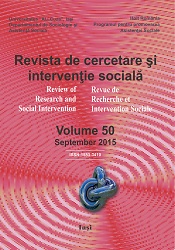DIFFERENTIAL EFFECTS OF SPECIFIC NEGATIVE EMOTIONS ON INDIVIDUAL RISK PREFERENCE BEHAVIORS UNDER SOCIAL ACCIDENTS: AN ANALYSIS FROM THE PERSPECTIVE OF AFFECTIVE COMPUTING THEORY
DIFFERENTIAL EFFECTS OF SPECIFIC NEGATIVE EMOTIONS ON INDIVIDUAL RISK PREFERENCE BEHAVIORS UNDER SOCIAL ACCIDENTS: AN ANALYSIS FROM THE PERSPECTIVE OF AFFECTIVE COMPUTING THEORY
Author(s): Jintao Lu, Naiding Yang, Jinfu Ye, Nasir MahmoodSubject(s): Psychology, Personality Psychology, Behaviorism
Published by: Expert Projects Publishing
Keywords: mixed negative emotion; risk preference; affective computing; emotional arousal and adjustment; behavioral intervention;
Summary/Abstract: Traditionally studies on the affect of emotions on the behavioral decisionmaking assume that, individuals with negative emotions are risk-seeking. However in real situations, individual decision-making behaviors show different tendencies of risk preference, thus more and more scholars are attracted to analyze the effect of specific negative emotion on individual risk preference behaviors. From the perspective of Affective Computing Theory (ACT), the concepts of mixed negative emotion, emotional space, intensity of mixed negative emotions and threshold of mixed negative emotions were introduced, the questionnaire of emotional state transition based on Markov process was designed, empirical analysis and numerical modeling were adopted to discuss different effects of specific negative emotion on individual risk preference behavior under social accidents. It is concluded that decision-making behaviors of individuals with mixed negative emotions are mostly inclined to risk-aversion under social accidents.
Journal: Revista de Cercetare şi Intervenţie Socială
- Issue Year: 2015
- Issue No: 50
- Page Range: 172-192
- Page Count: 22
- Language: English

